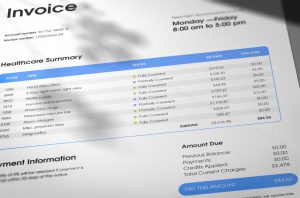Employers who have trouble providing their employees with a traditional group health insurance plan sometimes turn to health reimbursement arrangements (HRAs) to help. HRAs are not health insurance, they are employer-funded accounts approved by the IRS that help employees pay for qualified out-of-pocket medical expenses. They can also help pay for their individual health insurance plan’s premiums.  HRAs work through a reimbursement system. Employers offer employees a monthly allowance of tax-free money that they can use to pay for healthcare services, including health insurance, and then the employer reimburses them up to their allowance amount. But what if you’re a sole proprietor? You can offer this arrangement to any employees you have, but can you participate in the savings from an HRA yourself? In short, generally no, but there is a way you might be able to!
HRAs work through a reimbursement system. Employers offer employees a monthly allowance of tax-free money that they can use to pay for healthcare services, including health insurance, and then the employer reimburses them up to their allowance amount. But what if you’re a sole proprietor? You can offer this arrangement to any employees you have, but can you participate in the savings from an HRA yourself? In short, generally no, but there is a way you might be able to!
HRA Rules
Offering an HRA is a great way to help pay for your employees’ healthcare costs; these arrangements give you more control over how much you’re spending, and can help to lower your healthcare costs. HRAs only need to be funded when employees who participate in them incur expenses, and not all employees who participate will incur expenses up to the limit established by the employer. Any unused funds in the HRA stay with you, the employer.
There are also tax advantages to HRAs: any reimbursements made to your employees are tax deductible for you and tax-free for your employees. HRAs are only available to:
- Current and former employees, and their spouses.
- Covered tax dependents.
- Children who will not be 27 years old by the end of the tax year.

Unfortunately the IRS does not separate you and your business, which makes you ineligible to participate in an HRA.
Sole Proprietorship
As a sole proprietor, according to the IRS, there is no separation between you and your business. The Internal Revenue Code Section (IRC) 401(c) determines that owners who are self-employed individuals are not considered employees. This makes them ineligible to participate in a HRA. Ineligible owners include partners, sole proprietors, and more-than-2% shareholders in a Subchapter S corporation.
However…
If you are married and your spouse is listed as a W-2 employee at your business, then there is a way for you to get a HRA, and enjoy all of its tax benefits. To work around the rule set by the IRS, you can set up a HRA in your spouse’s name and list yourself as a dependent of your spouse. However, this will only work if you don’t hire any other W-2 employees who would be eligible for either an ICHRA, QSEHRA or a One-Person 105 HRA. What you can do is:
- Hire your spouse as a W-2 employee, and make their salary the amount you want to reimburse through the HRA.
- Make your spouse the primary policy holder on your family health insurance plan.
- Become a dependent on your spouse’s health insurance plan.
- Set up a One-Person 105 HRA, ICHRA, or QSEHRA for your spouse. Consider:
- The One-Person 105 option if you have medical expenses or other employees that are excludable under the rules.
- A QSEHRA if your health expenses are less than the reimbursement limit under the QSEHRA rules.
- An ICHRA if the reimbursement limit of a QSEHRA is too restrictive, since there are no limits on ICHRA contributions.

- Save all of your medical bills so your company can reimburse them each month from a separate account.
Get Help
To make sure that you are following the rules laid out by the IRS properly, it would be wise to speak with an insurance agent. EZ’s agents are highly trained and knowledgeable in the group health insurance industry, and can help you determine if participating in an HRA is possible for you. To find out if you are eligible, and to compare plans in your area for free, enter your ZIP code in the bar above, or to speak directly to an agent, call 888-998-2027.



